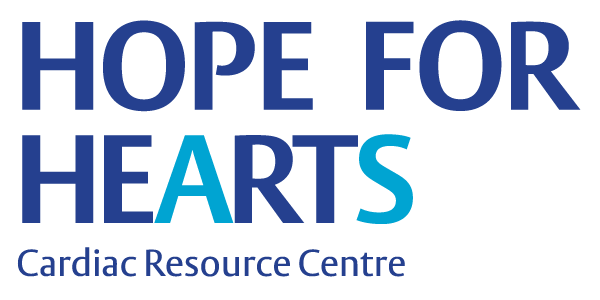Friday 29th of September, is World Heart Day 2023, a day to raise awareness regarding the significance of heart health and empower individuals to take control of their cardiovascular wellbeing.
Together with Cardiologists from across Australia, Hope For Hearts presents our essential steps to maintain a healthy heart and be proactive in managing heart-related risks.
Receiving a Heart Health Check
Interventional Cardiologist, Dr Samer Noaman reminds us that anyone can be at risk of developing heart disease. Therefore, receiving a regular heart health check is of critical importance for all of us. Dr Samer Noaman is a Consultant Cardiologist located at the Alfred Hospital, Western Health and in private practice at One Heart Cardiology.
Booking an appointment with your GP allows for regular monitoring and assessment of your cardiovascular well-being. Your GP will check important indicators like blood pressure, cholesterol levels, and overall heart function and can provide personalised advice on lifestyle modifications, medications, or referrals to other specialists if further investigation is required.
Additionally, asking your doctor to listen to your heart will allow for the potential early detection of any abnormalities in your heart’s function. By doing so, they can be diagnosed and addressed promptly. Regular heart checks empower individuals to take proactive steps towards maintaining heart health and reducing the risk of serious cardiovascular complications.
Importance of Primary Health
Dr Karthik Gopal stresses the importance of prioritising our overall primary health, such as blood sugar, blood pressure, cholesterol, and physical fitness. Controlling these primary indicators is an effective way to help protect the heart and as Dr Gopal explains, can also help us to recognise declining health over a period of time. Dr Gopal is an Interventional and Structural Cardiologist working across North West Private Hospital, The Prince Charles Hospital, and St Vincent’s Private Hospital Northside.
A heart-healthy diet is the cornerstone of cardiovascular well-being, directly influencing several risk factors associated with heart disease. Nutrient-rich foods like fruits, vegetables, whole grains, lean proteins, and healthy fats can help in to lower bad cholesterol levels, reduce blood pressure, manage weight, regulate blood sugar, and provide essential antioxidants and nutrients.1 By embracing a balanced and nutritious diet, individuals can support their heart’s health, decrease the risk of heart disease, and promote overall well-being.
Alongside diet, exercise is highly important to overall heart health because it strengthens the heart muscle, improves blood circulation, and helps maintain a healthy body weight. Regular physical activity also lowers blood pressure, reduces cholesterol levels, and enhances overall cardiovascular function.2
Managing Blood Pressure
Abnormal blood pressure is a major risk factor for heart disease, so prioritising quality sleep and stress management is critical to maintaining a healthy heart.
Chronic stress has been found to negatively impact the cardiovascular system. High stress levels trigger the release of specific hormones, leading to increased heart rate, elevated blood pressure, and inflammation. Over time, the increased strain placed on the heart can contribute to the development of heart disease. Finding ways to better manage stress, such as relaxation techniques, mindfulness, and self-care, individuals can better protect their heart from these risks.3
Quality sleep is an often forgotten yet crucial step in maintaining heart health. During sleep, the body repairs and rejuvenates itself, including the cardiovascular system. Heart rate and blood pressure naturally lower during this time, providing the heart with much-needed rest. Inadequate sleep or a sleep disorder may contribute to an increased risk of hypertension, obesity, and other heart-related issues.4 It is evident that prioritising good sleep habits can promote optimal heart function and improve overall cardiovascular well-being.
Understanding Heart Risks
Interventional and Pacing Cardiologist Dr David Di Fiore urges anyone with symptoms to receive a heart check from their General Practitioner. Dr Di Fiore is currently consulting at the Peninsula Heart Centre in Victoria and Albury Wodonga Health in New South Wales.
Genetics, lifestyle factors, medical history, and other influences can contribute to your risk of heart disease. Therefore, discussing your family history, lifestyle habits, and any existing medical conditions with your healthcare provider will allow them to make informed decisions about your heart health, including personalised recommendations, early detection, and targeted interventions to minimise any potential future risks.5
World Heart Day serves as an important reminder that prioritising heart health is an investment in our overall well-being. By scheduling a heart health check, recognising the importance of primary health, managing blood pressure, and understanding heart risks, you can take control of your cardiovascular health. These steps empower you to make informed choices that promote a strong and resilient heart, paving the way for a healthier and happier life.
Disclaimer This information is general and not conclusive. Follow any guidelines and advice from your doctor or specialist, health care, or multidisciplinary team, for your personalised patient-centred needs and care. Inquire about a patient advocate group regarding your specific needs. Call 000 if you are experiencing chest pain.
To find a GP or a Cardiologist near you, visit www.hopeforhearts.com.au
Connect the Docs www.connectthedocs.com.au is a medical marketing agency specialising in therapy awareness campaigns, educating medical professionals and patients about common conditions.

